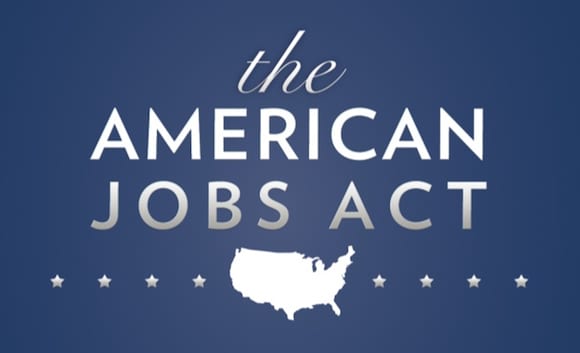New Law Will Help Indie Filmmakers Raise Financing
by Mark Litwak on April 18, 2012 in Financing

President Obama signed last week the JOBS (Jumpstart Our Business Startups) Act, a collection of laws that dramatically relaxes regulations on raising capital for startup companies. The Act has provisions that for the first time will allow internet crowdfunding of small businesses, such as producing indie films. Crowdfunding is a method of raising capital by obtaining small amounts of money from a large number of investors. Although existing companies like kickstarter.com enable filmmakers to raise funding through donations (i.e. gifts), this new law, when it becomes effective, will allow filmmakers to raise up to one million dollars in equity investments by soliciting the general public without complying with the onerous security regulations currently in place.
Up until now, it has been difficult for filmmakers to raise financing either through a public offering or a private offering. A public offering is made to the public at large and requires SEC approval. A company selling stock on the New York Stock Exchange is an example of a public offering. Registration for a public offering is both time-consuming and expensive, costing hundreds of thousands of dollars, and not a realistic alternative for most low-budget filmmakers.
A private offering, on the other hand, is generally restricted to people the promoter already knows, or as the law states, with whom the promoter has a “pre-existing relationship.” Advertising is generally prohibited. While a private offering is not nearly as expensive as public offering, the fees for the creation of a Private Placement Memorandum (PPM) can easily exceed $25,000, which is not an insignificant expense for a small entrepreneur.
The new law had bi-partisan support. It passed Congress with a 73-26 Senate vote and a 380-41 House vote. It allows non-accredited investors to participate in funding rounds. Non-accredited investors are essentially everyone who is not rich. In the past there have been significant limitations on the number of non-accredited investors a filmmaker could accept in an offering, typically no more than 35.
The SEC has 270 days to implement additional regulations, and it is not clear at this time how restrictive or liberal these rules may be. So it will be early 2013 when filmmakers will be able to actually start raising funds. Investors with a net worth under $100,000 are limited to investing the greater of $2,000 or 5% of their annual income or net worth, whichever is greater. Wealthier investors can invest 10 percent of their annual income or net worth, not to exceed a maximum aggregate amount sold of $100,000. Offers must be made through a Broker-Dealer or a “funding portal” that is registered with the SEC, pursuant to rules and regulations to be developed. Such intermediaries will need to provide detailed disclosures to investors and make sure potential investors confirm that they are willing to risk losing their entire investment.
The company seeking funding will need to disclose its financial condition including: a) If the target offering amount is $100,000 or less, then the most recent year’s income tax returns (if any); as well as financial statements of the issuer certified by the principal executive officer of the issuer as being true and complete in all material aspects; b) If the target offering amount is over $100,000, but not more than $500,000, the issuer must provide financial statements reviewed by an independent public accountant; and, c) If the target offering amount is over $500,000, the issuer must provide audited financial statements. So crowdfunding is not going to be as simple as soliciting investors from your blog or facebook, and the costs may not be any less than what it currently costs to prepare a PPM. However, being able to use the internet to attract many small investors could make it much easier to raise funds. Investors risking $2,000 may be more willing to tolerate on the risks of filmmaking than those being asked to invest larger sums.
Besides the ability to raise funds through crowdfunding, the Act made a major change to Reg D 506 offerings, which are offerings limited to accredited investors (i.e. wealthy people). For the first time the restrictions on public solicitations have been removed which means that the offering company could solicit investors including approaching them over the Internet. The SEC has 90 days to develop rules to implement this change.
Critics of the new law claim that these changes will open the floodgates for scammers to raise funds from unwary investors. With that in mind, investors may want to read the article I wrote for the Vanderbilt Law Journal about protecting film investors
